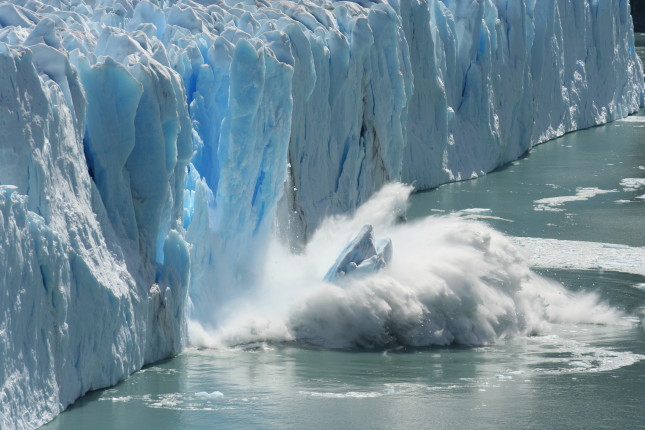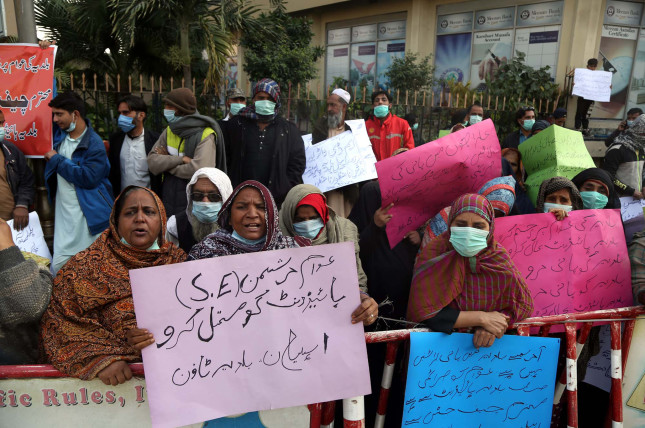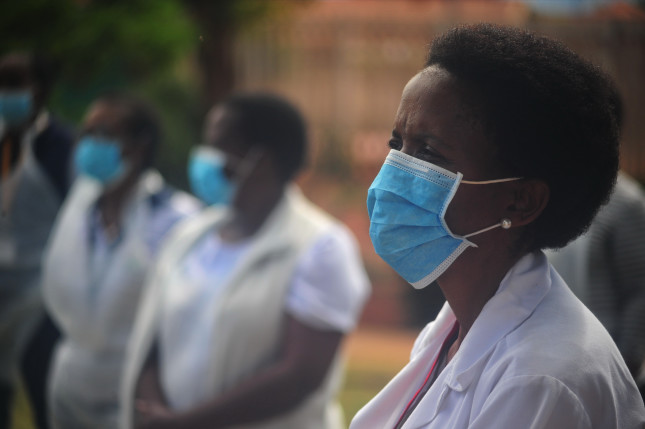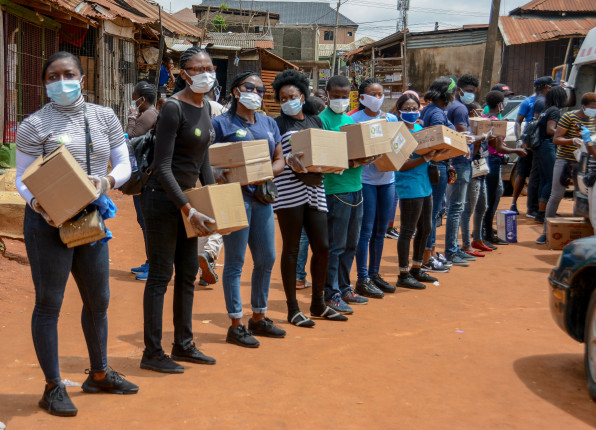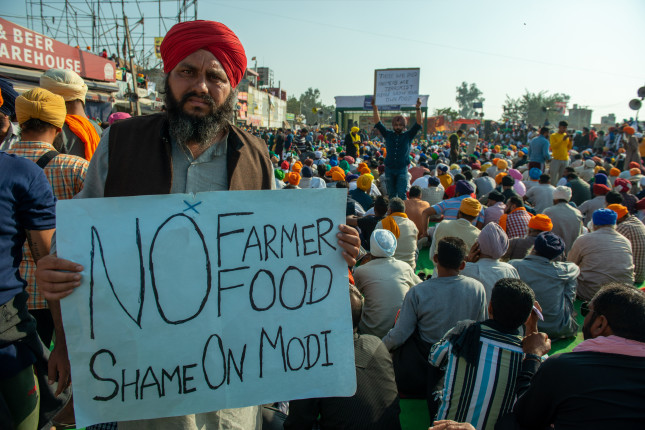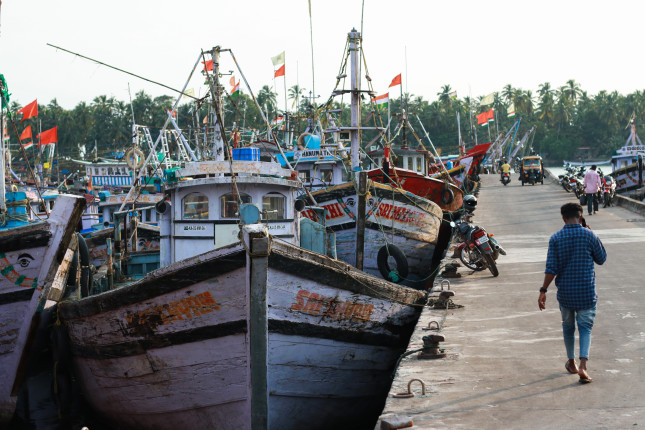-
Guest Contributor
Why Cities Matter
MORE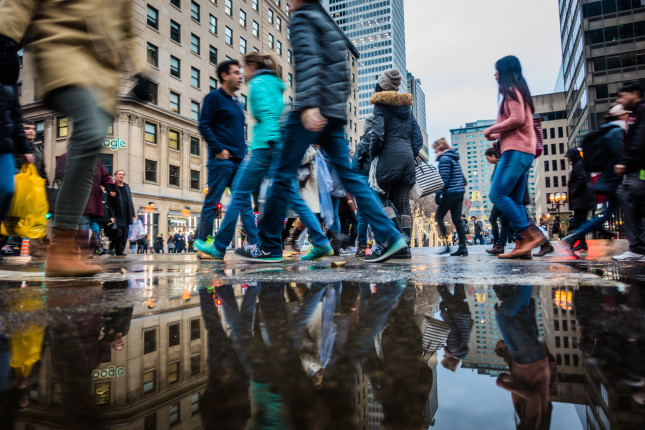
Do you remember a year ago when many of us traveled regularly? Do you remember the experience of flying into a major city somewhere in the world, picking up your bags in a modern airport (that probably functioned more efficiently than in the United States), and getting a vehicle to take you downtown? After leaving the airport, we would often drive past miles of informal settlements—self-built shelters unkindly called “slums” much of the time. We may have even found ourselves asking why local authorities “don’t do something” about them.
-
What You Are Reading
The Top 5 of February 2021
MORE
Collapsing ice shelves raised concerns in 2020, but the immediate effects of climate change in the polar regions are merely the tip of the iceberg, write Olivia Popp and Michaela Stith in this month’s top post. What happens in the polar regions doesn’t always stay in the polar regions—it has profound effects on climate and communities around the world.
Topics: What You Are Reading -
Guest Contributor
Why Water Conflict is Rising, Especially on the Local Level
MORE
That future wars will be fought over water, rather than oil, has become something of a truism, particularly with regard to the Middle East. It’s also one that most water experts have refuted time and time and time again. But while this preference for cooperation over conflict may (and emphasis on may) remain true of interstate disputes, this blanket aversion to the ‘water wars’ narrative fails to account for the rash of other water-related hostilities that are erupting across many of the world’s drylands. As neither full-on warfare nor issues that necessarily resonate beyond specific, sometimes isolated areas, these ‘grey zone’ clashes don’t seem to be fully registering in the broader discussion of water conflicts. In failing to adequately account for the volume of localized violence, the world is probably chronically underestimating the extent to which water insecurity is already contributing to conflict.
Topics: Africa, Asia, community-based, conflict, Guest Contributor, Middle East, security, water, water security -
Africa in Transition // Covid-19 // Guest Contributor
Redesigning Health Systems for Global Health Security
Africa in Transition // Covid-19 // Guest Contributor // February 22, 2021 // By Uzma Alam, Juliet Nabyonga-Orem, Mohammed Abdulaziz, Ambassador (ret.) Deborah R. Malac, John N. Nkengasong & Dr. Matshidiso R. MoetiMORE
Africa was predicted to be hardest hit by the COVID-19 pandemic, given its poor health systems. However, this outcome has not been the case. Despite the U.S. being the highest spender on health care globally, COVID-19 has shown that its primary care infrastructure is in much need of strengthening. But we should not mistake COVID-19 as the biggest pandemic of our time. If anything, it is only a dry run, with other epidemics brewing on the horizon. Therefore, if the global community is serious about epidemic preparedness, global health security, and protecting the most vulnerable, we need to redesign health systems for resilience. Africa’s lessons from the COVID-19 pandemic, as well as from concurrent outbreaks of cholera, Ebola virus disease, yellow fever, and chikungunya, could provide a roadmap.
-
Guest Contributor
Pan-African Response to COVID-19: New Forms of Environmental Peacebuilding Emerge
Guest Contributor // February 8, 2021 // By Elaine (Lan Yin) Hsiao, Fakunle Aremu & Ousseyni KalilouMORE
Early predictions about COVID-19’s impacts on Africa suggested that the continent would be a disaster zone marked by weak medical systems collapsing under strain and undemocratic states failing to provide social services to destitute populations. These predictions did not come to pass. Instead, many countries across the continent stepped up early on to join the world in curtailing the spread of COVID-19. The second order effects of the virus have been significant, however. Despite the low numbers of infections and deaths, lockdowns and the decline of a large percentage of informal trade and commerce in Sub-Saharan Africa have sent the region’s economy into recession, with increased inflation rates, widespread unemployment, and increased food insecurity. It’s within this context that collaboration (internationally and within the continent, between governments, the private sector, and local communities) to protect the environment—and by extension enhance livelihoods, promote sustainable development, and achieve enduring peace—has taken new forms.
-
Guest Contributor
Climate Change in the Indian Farmers’ Protest
MORE
The ongoing farmers’ movement in India has taken the world’s largest democracy by storm. Hundreds of thousands from all over the country have laid siege to New Delhi for more than two months. As both the protestors and the government dig their heels in, the chances of confrontation and violence are increasing by the day.
-
Navigating the Poles
Tip of the Iceberg: Polar Ice Loss Effects the Planet
MORE
When the United States purchased Alaska from Russia, Americans considered the “frozen wasteland” to be a reckless, wasteful acquisition. What could ice possibly offer?
In fact, polar ice is a critical resource for the Earth. The summer and fall of 2020 marked the lowest sea ice extent ever recorded in the Arctic Ocean, and the Intergovernmental Panel on Climate Change (IPCC) says contemporary September sea ice extents are so low that they are unprecedented in at least 1,000 years. Moreover, collapses in the ice shelves of West Antarctica, Canada, and Greenland raised concerns in 2020. The immediate effects of climate change in the polar regions are merely the tip of the iceberg—ultimately, they have profound effects on climate and communities around the world.
-
Guest Contributor
Managing Fisheries Conflict in the 21st Century: A Role for Regional Management Organizations?
MORE
Are climate change and declining fisheries productivity likely to lead to a future of fish wars, or can existing fisheries management institutions evolve to help prevent large-scale fisheries conflict? From militarized fishing practices in the South China Sea, to the ongoing wrangling between the European Union and Great Britain over fishing rights, to violent clashes between indigenous and non-indigenous fishers in Canada, fisheries are at the center of many international, or at least inter-governmental, disputes.
 A Publication of the Stimson Center.
A Publication of the Stimson Center.

